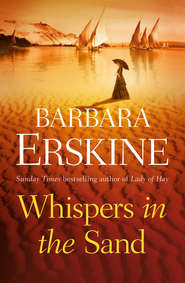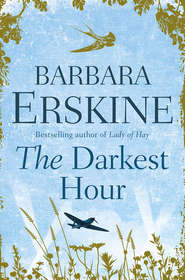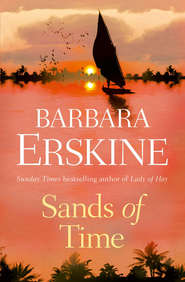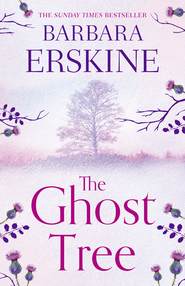По всем вопросам обращайтесь на: info@litportal.ru
(©) 2003-2024.
✖
Hiding From the Light
Настройки чтения
Размер шрифта
Высота строк
Поля
Judith laughed. ‘Very Shakespearean! You must have had cheese for supper. That gives one bad dreams. It’s a beautiful night to be sleepless, though.’ There was a hint of wistfulness in her voice which made Mike glance at her sideways. He knew nothing, he realised, about her private life; he didn’t think there was a man around, nor ever had been as long as he had known her, nor a woman, either. She lived alone. She taught at the school and her spare time was devoted to the church.
‘How was Ollie?’ he asked. Oliver Dent was at least eighty, so he doubted if her relationship with him was more than that of a friend, although one couldn’t tell even that these days. His question distracted them both from their thoughts. ‘He’s better. He’s got himself a cleaning lady and it’s cheered him up a lot. It’s a pity it’s Lyndsey Clark, but I suppose even she is better than nothing.’
‘Lyndsey Clark?’ He was watching the water lapping round a boat lying on the mud near them. ‘I don’t think I know her.’
‘No. You wouldn’t.’ The tone of Judith’s voice sharpened. ‘Going back to our conversation about witches the other day: she is one of them. The rector is unlikely to be on her list of close friends.’
‘She’s a witch?’ He turned and stared at her. ‘A real one?’
Judith nodded. She scowled. ‘The trouble is she’s clever. Oliver was telling me all about her. She was all set for a brilliant university career at Cambridge. But that didn’t suit her. No doubt they tried to instil some sense into her. So like the silly spoiled child she is at heart, she dropped out. I don’t know when she became a witch. Perhaps she was recruited by one of the local covens, but she makes no secret of it. She exudes evil from every pore!’ She fell silent for a moment, then she went on. ‘She lives by doing odd jobs. She’s got a lot of charm; she’s very attractive. The men all fall for her left right and centre.’ She tightened her lips distastefully. ‘So, beware, Mike, dear. If she casts a spell in your direction you could be lost.’
‘I’m intrigued.’ The boat was surrounded by water now. The tide was creeping silkily towards them across the mud. ‘You said before that there was witchcraft round here. Real witchcraft. It worries you in school.’
‘From time to time.’ Judith shivered. She was wearing a short-sleeved flower-print dress and flat strappy sandals. The warm night air was very still but a raft of small goosepimples showed on her upper arms for a moment. ‘It’s more a teenage thing. Satanism. But even my kids think it’s glamorous. Exciting. There are at least two covens round here, and the kids are in danger of being drawn in.’
‘And the church does not provide the glamour or the excitement they crave,’ Mike said thoughtfully.
‘Absolutely.’ Judith shivered again. ‘And why should it? It is not an entertainment. It is not meant to be fun.’
‘Indeed.’ He turned away to hide a wry grin.
‘Be careful, Mike.’ She glanced at him. ‘You’re very vulnerable, you know.’
‘Am I?’ He was genuinely astonished.
‘You had to ask me if there were witches round here.’ She glanced at him covertly. ‘You ought to know, Mike. One can feel it. One can feel the evil. On a night like this, when the moon is full and the mist creeps up the river, there is danger in the air. That man who came to you about the ghosts. He was genuinely afraid or he would not have come to speak to you.’
Mike glanced in spite of himself behind him towards the river. He was silent for a while, his brow furrowed. She was watching him as she let her words sink in.
Eventually he spoke. ‘Do you think I should speak to this Lyndsey person?’
‘No!’ She replied so sharply he took a step back. ‘No, Mike. I don’t want you going near her.’
‘You don’t think I’m strong enough to fight her evil?’ He sounded reproachful.
‘I’m sure you are.’ Judith was staring at a young couple wandering along the road towards them. They were arm in arm, every now and then stopping to devour one another’s mouths. She shuddered. ‘Don’t draw her attention, Mike. I’ll deal with her. My prayer circle will hold her before the Lord. We’ll contain her.’
Mike gave her a quick glance. Why, he wondered silently, did that thought worry him so much?
An hour later Judith, dressed in her cotton pyjamas and powder-blue dressing gown, went into the kitchen. Reaching for one of the pill bottles, she withdrew a single Warfarin tablet and swallowed it with a sip or two of water – something she had done every night since she had had the heart valve operation just before Mike arrived in the parish. Then she padded into her bedroom, where she knelt beside her bed and brought her hands together in prayer as she had done every night since she was a small child. The prayers lasted exactly fifteen minutes and by the end of them she was stiff and shivery, which was strange as the night was so warm. But her bedroom, unheated, even in winter, had always been cold. Climbing to her feet she took off the dressing gown, turned off the light and climbed into the narrow bed. Usually she slept at once, but tonight she was restless. She felt as if she had drunk too much coffee; her pulse was jumpy, her breathing irregular, her eyes refusing to close, searching the bedroom for shapes amongst the shadows cast by the streetlight near the garden gate.
I shall need you to help me, Goodwife Phillips.
The voice came from the figure in the corner of the room.
Judith shrank back against the pillows with a small yelp of fear. Staring, she tried to see him, but the shadows were black where the wardrobe stood between the window and the door.
We have to find every witch in the area. We have to do God’s work.
Terrified, Judith nodded. She wasn’t Goodwife Phillips. He couldn’t be speaking to her.
You enjoyed your work with me, and there is more to do, Mary!
‘I am not Mary!’ Judith found she had spoken out loud, her voice husky with terror but her indignation at the case of mistaken identity strong. ‘You’ve got the wrong person!’
She was shaking violently.
She lodges in your soul, Judith. You are kindred spirits you and she!
Was that a chuckle she could hear from the corner? As her eyes strained to see the owner of the voice a car turned into the street and the headlights shone for a moment through the thin curtain, lighting up the wall. There was no one there. Of course there was no one there. It was a dream. Desperately she squeezed her eyes shut and pulled her blankets up over her head.
By next morning she had forgotten the whole incident.
19 (#ulink_c66a3fe1-e89b-508f-a914-9f71161dfe38)
The huge moon was still lighting up the countryside like daylight as Lyndsey let herself out of her house. The row of three fisherman’s clapboard cottages was set in the shadow of the old maltings buildings on the quayside. The deep channel came close to the shore there beyond the dock, and the water was black and moved uneasily beneath the pull of the moon. There was no sound as she paused, glancing across the quay down river towards the broad estuary. Somewhere out there, beyond the strip of water and the shining mud, something old and evil hid, swathed in the cold sea mist. More and more often now she sensed it there waiting, and it terrified her. Was she the only person in the entire peninsula who felt it?
The whole world seemed to be asleep; the cottages on either side of her own were in darkness. Quietly she went back and wheeling her bicycle outside, she clicked the front door closed behind her. No one saw her as she set off along the quay and turned up the narrow road towards the centre of the village.
The site of the old church lay in the moonlight like a bright tapestry, a quilting of light and shadow, black and grey and deep velvet green. As she climbed over the wall she stood for a long time, listening. Somewhere a bird, disturbed by the moonlight, whistled plaintively and fell silent and she could hear the high-pitched squeak of bats as they ducked and dived across the grass.
Sure-footedly she made her way to the centre of the thicket where the north wall of the church had once stood, and kneeling on the dew-wet grass she pulled a night-light from her pocket. She lit the flame and steadied it with cupped hands, waiting for the wax to pool around the stubby wick. A pinch of dried herbs and a few grains of incense which hissed and spat, and quietly she began her prayer to the goddess, muttering under her breath, afraid in the still silence to speak out loud for fear of being overheard. Not that there was anyone to hear. The road was deserted, the houses, out of sight beyond the trees, were in darkness and behind her Liza’s cottage was empty and asleep.
When she had finished she stood for a long time, her senses alert, her eyes scanning the shadows. The place was quiet and still at peace.
Turning at last she walked back to the wall. In the lane she hesitated beside her bicycle, then, after a moment’s deep thought she made her way quietly towards the cottage. The For Sale sign had gone to be replaced with one which said Sold. It stood straight and proud, strapped to the gatepost at the end of the holly hedge throwing a black rectangular shadow across the path. Will Fortingale had told her who was buying it. A business woman from London who was so rich she didn’t need a mortgage. A weekender. Someone who would probably employ an interior designer and gardeners and change the place out of all recognition. Carefully she let herself into the garden. Out of the moonlight the shadows were very black. The house still seemed to be asleep. Behind the doors and curtainless staring windows she could sense its emptiness and suddenly she was afraid. She stood still, staring round, the tiny short hairs on the back of her neck bristling. ‘Liza?’ she whispered. ‘Liza, are you there?’
No one answered. The moon was sailing higher now, and smaller. In the apple tree by the gate a bird called out in alarm and she saw the small dark shape flit out of sight across the garden.
Making her way between the rose bushes with their burden of overblown, sweet-scented flower-heads, Lyndsey moved silently around the back of the house. The terrace had been extended about thirty years before by the Simpsons. Small moss-covered red bricks had been set in a herringbone design and around the edges of the terrace they had left a dozen or so large old flower pots which still boasted leggy untrimmed lavender and rosemary bushes. The weight of the roses had pulled down the pergola and their scent, rich and sweet in the night air, was almost cloying as she stepped off the terrace and onto the wet grass. She could feel the garden full of eyes, watching her. Small animals and birds, but also other creatures of the night, hidden invisible beings who had made the garden their own. They were worried too, as uncertain as she was about what would happen to this place. ‘I’ll take care of things, my darlings,’ she whispered. She felt them listening, felt them tense suddenly, their attention hers. ‘We don’t want anyone moving in here, do we? Don’t worry. I’ll get rid of her. You must help me.’
She glanced up as an owl hooted, and watching its swift silent traverse of the garden, she smiled. ‘It’ll be child’s play for us, won’t it. With Liza’s help.’ She paused, turning round. ‘You will help, Liza, won’t you? We don’t want any newcomer pushing her way in here. This is your place. Yours and mine.’
The Simpsons had lasted eighteen months, so she’d been told, before they moved out of the cottage. Holidaymakers came and went. They didn’t seem to bother Liza. After all, there were long periods when the cottage lay empty in between. And since Lyndsey had come back to the village there had been no holidaymakers at all. She had seen to that. She wanted the house empty because the garden was hers; the place, though with such care that no casual observer would see that anyone had been there, where she planted and tended and harvested her herbs.
She had lasted four terms at university. Hateful place. In town. Full of people and cars and noise. Her parents had washed their hands of her when she walked out, her father blustering and indignant, her mother crying. ‘Most people would give their right arm to go to Cambridge, Lyn! How can you do this to us? How?’
They had never understood her. Never cared about who she really was, about what was best for her, rather than for them. When Lucy Stebbings, her great-aunt, had died and left her the tiny terraced cottage in Mistley she had taken it as a sign that she was blessed and supported in her bid for total freedom. She moved in and earned a modest living doing odd jobs around the village to subsidise her real work and her passion: her exquisite, detailed paintings and her research into the occult use of herbs which would one day form the core of the witches’ herb Bible she was planning to write. She had never gone back to her parents’ home in Woodbridge. Had never seen her father again. Her mother came over occasionally with food parcels and clothes and clucked around. Lyndsey was barely civil to her. All she wanted was to be left alone.
She shook her head. What had got her thinking about her past suddenly? Liza, probably. Liza wasn’t an ancestor. She had had no children who had lived. But Sarah had, and Sarah was an ancestor. Sarah, who was Liza’s nursling, Liza’s friend and Liza’s pupil. Sarah who had ended her days in this cottage, the dower house where she had come to live in her old age and where she had carried on Liza’s work.
This cottage should have been Lyndsey’s by rights. That it had not belonged to anyone in her family for three hundred years made no difference to her at all. This land, this home, this place, was hers, her natural inheritance, and no one was going to steal it from her.
She shuddered. She could feel her everywhere, the stranger who was buying the house. She too had stood out here beyond the terrace. Her energies were strange. Uneasy. Afraid. She was bringing unhappiness and danger. Suddenly Lyndsey’s senses were screaming. This could not be allowed to happen. It would undo all the good she had worked for over the years; unleash everything that she had fought to contain. She was going to re-awaken the evil, allow it in, encourage that mist to drift in from the sea and engulf them all.
The spell was an easy one. First the circle drawn faintly in the grass, her whispered invocation to the guardians of the quarters, her arms raised to the goddess moon as she sailed serenely in the clear, midnight sky.
‘Let no one buy this house. Let no one live here. Let no one enter these doors who does not belong. Liza, mother of my mother’s race, listen to my prayer and help to guard your home. If anyone should move here, let their stay be short. Let the very doors and walls, ceilings and floors, the spiders, the rats and mice, let them all conspire to drive her out. Let the chimneys smoke and the mildew curl about the walls, let the rot take the boards and the worms the beams.’ She paused, pleased with the resonance of the words. Then suddenly she frowned. ‘But not so badly that it falls down, of course.’ She smiled to herself and shook her head. ‘Liza, this is still your home. Your house, your place. Keep this woman out. Haunt her! Scare her! Make her ill. Send her mad. Do not allow her to stay!’











